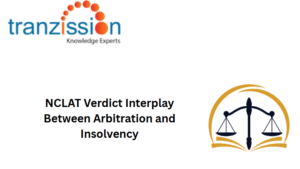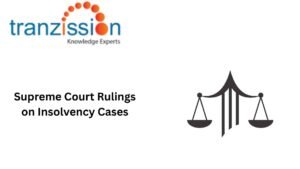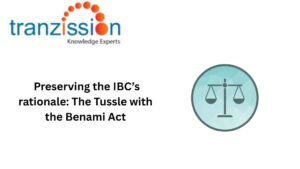
Ordinary Course of Business Defence under the IBC

Table of Contents
Section 43 of the Defence under the IBC:
Section 43(2) defines a transaction as preferential if it involves the transfer of property or an interest thereof by the corporate debtor for the benefit of a creditor, surety, or guarantor on account of an antecedent financial debt or operational debt, placing them in a more favorable position than they would have been in the event of distribution of assets under Section 53. This specifies a look-back period of two years for related parties and one year for unrelated parties preceding the insolvency commencement date.
Section 43(3)(a):
However, this sub-section exempts transfers made in the ordinary course of business or financial affairs of the corporate debtor or the transferee from being deemed preferential. The rationale of this exception is to allow businesses to continue their routine operations without the fear that standard transactions might later be challenged as preferential during insolvency proceedings
Judicial Interpretation
The exception to ‘ordinary course of business’ Defence under the IBC draws parallels from Section 547(c)(2) of the U.S. Bankruptcy Code, which provides a similar defense against preference avoidance actions. Unlike the U.K.’s Insolvency Act of 1986, which lacks an explicit defense, the IBC incorporates this provision to balance the need for business continuity with creditor protection. India has implemented this exception through court judgments. For instance, the Supreme Court in Jaypee Infratech Ltd. clarified that “ordinary course of business” should be interpreted as applying to both the corporate debtor and the transferee, meaning both parties must be acting in their regular course of business.
Read more : What is rebidding in the resolution process?
Implications for Insolvency Professionals
Due Diligence in Transaction Review:
IPs must meticulously evaluate transactions during the look-back period to identify potential preferential dealings. Applying this exception requires a thorough understanding of the corporate debtor’s business operations and historical transactions, which may be delaying the overall process. They need to maintain comprehensive records of transactions, including contracts, invoices, and communication, is crucial to substantiate claims that a transaction falls within the exception.
Balancing Business Continuity and Creditor Interests:
The exception under section 43(3)(a) serves to reassure counterparties that engaging in routine business with firms nearing insolvency won’t automatically subject them to clawback actions, thereby supporting ongoing business relationships. IPs must remain vigilant to ensure that the OCB exception is not misused to shield transactions that, while appearing routine, are structured to prefer certain creditors unjustly.
Challenges and Considerations
The challenges of excluding certain transfers made in the ‘ordinary course of business’ are:
- The Defence under the IBC does not explicitly define “ordinary course of business,” leading to reliance on judicial interpretations and necessitating case-by-case analysis. This may lead to delays in the insolvency process.
- The onus is on the party asserting the defense to demonstrate that the transaction meets the criteria. This requires such parties to submit substantial evidence and a clear depiction of the corporate debtor’s business practices.
Recommendations for Practice
The Insolvency and Bankruptcy Board of India (IBBI) should develop standard operating procedures.
- The IBBI can implement robust internal controls to monitor and document transactions can aid in distinguishing between ordinary and extraordinary dealings.
- The IBBI can educate management and staff about the implications of this exception can help in structuring transactions that withstand scrutiny during insolvency proceedings.
- IPs can consult industry experts to understand standard practices can provide context when assessing whether a transaction aligns with the ordinary course of business.
Conclusion
The “Ordinary Course of Business” exception under Section 43(3)(a) of the IBC plays a pivotal role in delineating transactions that are integral to a corporate debtor’s routine operations from those that may unjustly prefer certain creditors. Essentially, this sub-section helps ensure that genuine commercial activities are not hampered by section 43 of the Defence under the IBC, which could potentially hinder the corporate debtor’s ability to continue operating.





